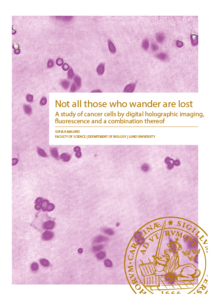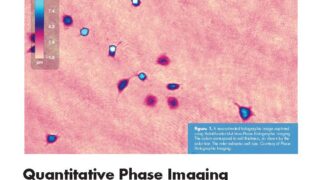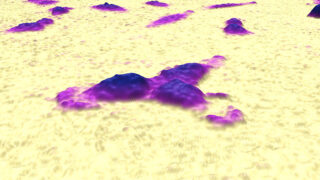Dissertation: A study of Cancer Cells by Digital Holographic Imaging
PHI’s Industrial Doctoral Student Sofia Kamlund has had her dissertation of her thesis: Not all those who wander are lost: A study of cancer cells by digital holographic imaging, fluorescence and a combination thereof. Opponent was PhD Robert Judson, from UCSF in California.

Sofia Kamlund has studied Cell Division and Cell Movement using Digital Holographic Microscopy. Her research presents new ways of analyzing individual cells by using Holographic Microscopy alone or in combination with Fluorescence Microscopy. Quantitative Analysis of individual cells over long time periods is important for the complete understanding of cell populations. Sofia Kamlund’s method, using Digital Holographic Imaging, is a non-toxic quantitative, way to track and analyze single cells over a long time period.
Cancer is the second leading cause of death in the world. The interest to find cancer stem cells and target them during treatment is large. Cancer stem cells have the ability to migrate and form metastases. In her research, Sofia Kamlund found that salinomycin treatment decreased cell proliferation of cancer stem cells within 24 hours of treatment.

Congratulations Sofia!



